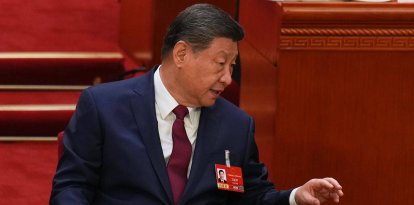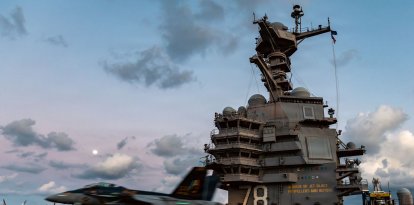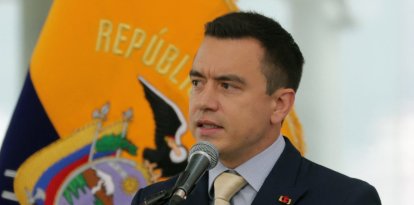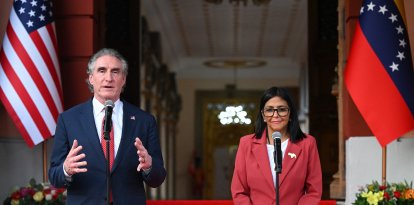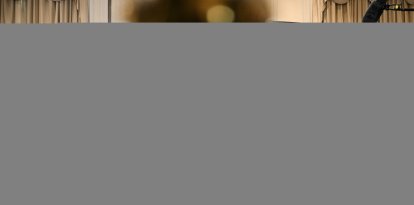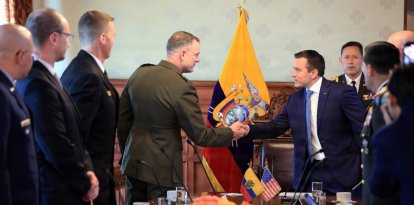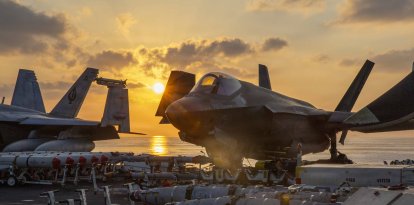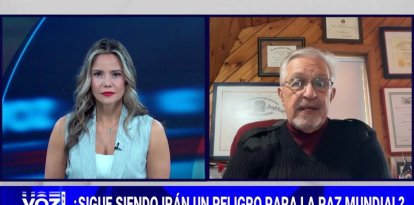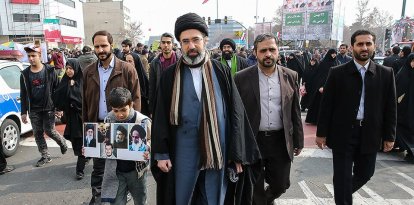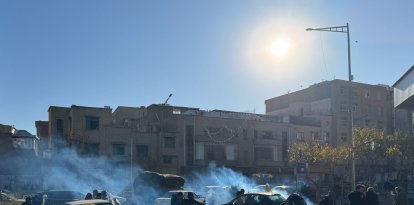Boris Johnson secretly visited Venezuela to meet with the Maduro regime: What was it about?
In the meeting, which was classified as "unofficial," the former prime minister discussed conditions for normalizing relations between London and Caracas.
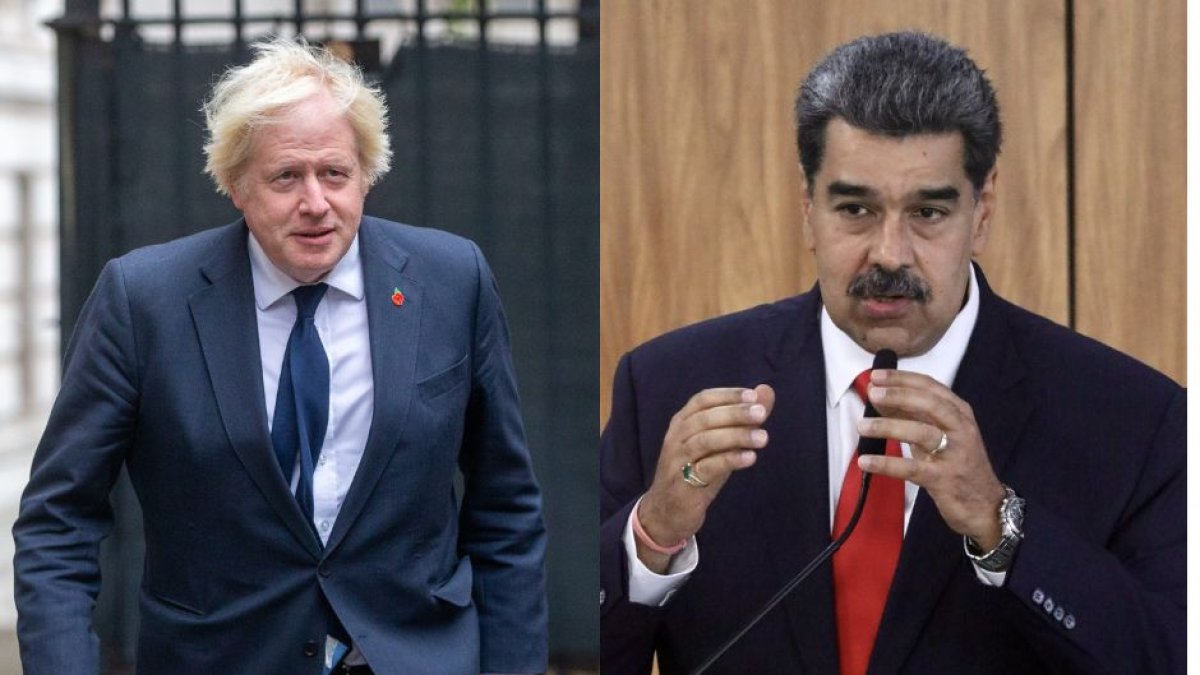
Boris Johnson y Nicolás Maduro. (Créditos: Cordon Press)
Former British Prime Minister Boris Johnson secretly traveled to Venezuela last month on a visit classified as "unofficial" to meet with officials from Nicolás Maduro's regime.
The Times revealed Johnson's secret visit. The report stated that he held conversations with Venezuelan regime officials related to the war between Ukraine and Russia and also the normalization of relations between Caracas and London in exchange for a series of democratic concessions and a promise not to increase tensions with Guyana in the area known as Essequibo. This claim area has kept both countries in diplomatic conflict for over a century.
A spokesman for Johnson explained in broad strokes why the former prime minister traveled to Venezuela.
"Boris Johnson met Venezuelan government officials with active support from the Foreign, Commonwealth and Development Office (FCDO) and the knowledge of the foreign secretary, in order to emphasise the need for Venezuela to embrace a proper democratic process," the spokesperson said. "He repeatedly made clear there can be no hope of normalisation in relations until Venezuela fully embraces democracy and respects the territorial integrity of its neighbours. He also set out the case for the cause of Ukrainian victory to the government of Venezuela."
According to the report, Johnson took a private jet to Venezuela from a family vacation in the Dominican Republic. He reported on the way to Lord Cameron of Chipping Norton, the Secretary of Foreign Affairs, who was ultimately aware of this "unofficial" visit that he did not require any special permission or formal request.
Johnson, who stayed on the outskirts of Caracas, spent less than 24 hours in Venezuela and, before meeting with Maduro's officials, spoke with Colin Dick, chargé d'affaires in Caracas (the most senior British diplomat in the country), to ask his thoughts on what would be helpful to say during the meeting.
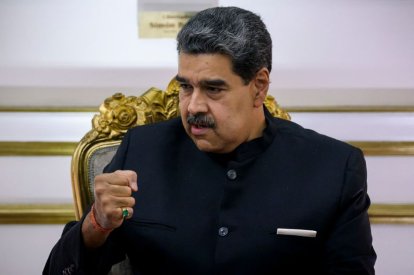
Venezuelan President Nicolás Maduro speaks with Russian Foreign Minister Sergei Lavrov
In the end, Johnson left concise messages: the United Kingdom is concerned that the Maduro regime, a close ally of Vladimir Putin, is helping Russia with the supply of weapons or other military support in the context of the war.
Likewise, the conditions to normalize relations with the United Kingdom, a country that does not recognize Maduro's legitimacy after the rigged 2018 elections, were also discussed unofficially.
According to The Times, Johnson demanded two things: holding truly free elections in Venezuela and promising not to increase tensions around Essequibo after the failed referendum in Venezuela last December on the sovereignty of the disputed territory that the Venezuelan State has been claiming for centuries.
According to British government sources, one of the meeting's specific objectives was to establish a "secondary channel" between the United Kingdom and a country in the West relevant to the geopolitical framework.
"The talks are highly unusual given the state of bilateral relations and wider uncertainty about Western relations with Venezuela, which has the world's largest oil reserves and has been a steadfast supporter of President Putin," the newspaper reads.
Furthermore, the unofficial talks between Johnson and the Maduro regime come at a difficult time for the Venezuelan opposition.
In October, the Biden Administration, highly questioned for its policy toward Venezuela, agreed to ease oil and gas sanctions imposed in the Trump era in exchange for democratic reform and the release of political prisoners.
However, the Maduro regime broke the tacit agreements signed in Barbados between the opposition and the Chavista regime, which Washington backed.
In recent months, experts and human rights defenders agree that Maduro has increased repression, politically disqualifying the leader of the Venezuelan opposition, María Corina Machado, and arresting dozens of democratic activists.
This week, the Maduro regime announced presidential elections for July 28 that, for the moment, will not have Machado's participation or the necessary guarantees to be considered truly free.













